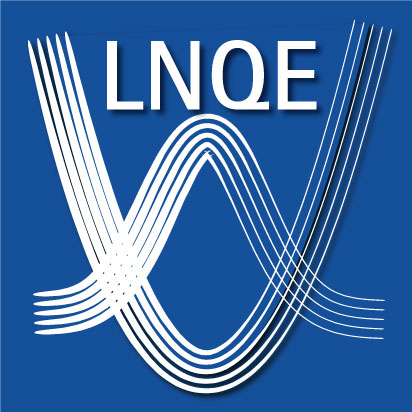The coating in the juice box, the dashboard in the car and the pouch for waste paper: plastics are an integral part of everyday life. However, they are comparatively complex to manufacture and the energy consumption is correspondingly high. An international research team from the Leibniz Universität Hannover, the University of Augsburg and the Boreskov Institute Novosibirsk have succeeded in changing the gas transport properties of metal-organic network compounds by applying electric fields. The process could substantially simplify the production of plastics such as, for example, polyethylene or polypropylene, thereby helping to significantly reduce the production costs. The scientists have now published their results prominently in the renowned journal Science in the issue of 20th October 2017: https://doi.org/10.1126/science.aal2456
The production of high-purity propylene for polymerisation to plastic polypropylene (PP) is very energy-intensive. This is usually done by the cryogenic distillation process, which requires high temperature ranges since temperatures of up to -40 degrees Celsius must be generated. A newly developed process using a nanoporous gas separation membrane could remove this complex distillation and save up to 80 percent energy. This also reduces CO2 emissions. The gas separation membranes consist of metal-organic frameworks (MOFs), i.e. from a dense layer of nanoporous crystals.
"MOFs have, by their adjustable pore sizes, actually optimal properties for the purpose of sieving molecule sizes and e.g. on natural gas fields to separate propylene from propane. However, there are soft crystals and, at room temperature, a large number of framework vibrations are always active. The MOF breathes so to speak, "says Prof. Jürgen Caro, from the Institute for Physical Chemistry and Electrochemistry at the Leibniz University of Hanover. "This leads to the fact that these crystals lie under their actual potential as a molecular sieve and also a large number of larger molecules pass through the pore openings."
In order to solve this problem, the researchers deposited MOFs as thin membrane layers, through which the gas mixture to be separated was then passed. At the same time, an electric field was applied across a plate capacitor assembly. For this purpose, the existing laboratory technology had to be redesigned and made entirely of Teflon in its own workshop. "In our measurement setup, we were able to measure the effect that an electric field has on this material," said Alexander Knebel, HSN member, adding: "We were able to actually defibrillate the skeletal vibrations of the membrane with an electric field: the propylene / propane Separation improved by 33 percent due to the electric field. "The difference in size between propane and propylene is only 0.03 nanometers. Separation of these two molecules with the help of tailor-made membrane technology is an ecologically and economically highly interesting, demanding and from the industry strongly funded task.
An international team has worked together interdisciplinarily on the success. For the understanding of the effects, the collaboration with the solid-state chemist Prof. Dr. Dirk Volkmer in Augsburg, the physicist Prof. Dr. Alexander Stepanov in Novosibirsk on nuclear magnetic resonance and the physicist Prof. Dr. Paul Heitjans in Hannover to dielectric spectroscopy is critical. The work is financed by the Deutsche Forschungsgemeinschaft (DFG) as part of the COORNET focus program: Coordination Networks: Building Blocks for Functional Systems.
- https://www.pci.uni-hannover.de/
- https://www.physik.uni-augsburg.de/chemie/
- http://www.en.catalysis.ru/
- https://www.ids.uni-hannover.de/ids_home.html
Note to Editors
For further information, please contact Prof. Dr. Jürgen Caro and Alexander Knebel M.Sc. from the Institute for Physical Chemistry and Electrochemistry at the Leibniz Universität Hannover, by telephone at +49 511 762 3175 or 2942 or by e-mail at juergen.caro@pci.uni-hannover.de and alexander.knebel@pci.uni-hannover.de.











